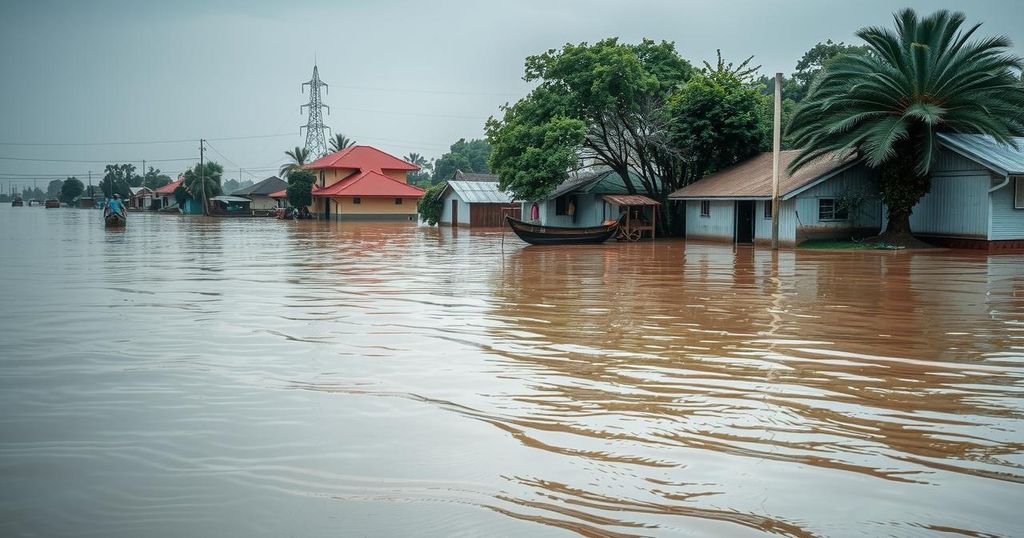Climate Change to Intensify Flooding Events in the Sahel Due to AEW Alterations
A new study indicates that extreme flooding events in the Sahel are expected to intensify due to global warming affecting African easterly waves. The research points to significant increases in wave activity by the end of the 21st century, which may lead to increased flooding and altered Saharan dust transport, ultimately impacting regional climates and weather patterns.
A recent study published in JGR Atmospheres has revealed that the intensity and frequency of extreme flooding events in the Sahel region are set to increase due to a warming climate leading to alterations in African easterly waves (AEWs). These weather systems are vital as they facilitate rainstorms across drought-afflicted areas in Northern Africa and contribute to the transport of Saharan dust, which plays a role in Atlantic hurricane activity.
The researchers analyzed how global warming may alter wave activity using an ensemble of Earth system models. Their findings confirmed a significant increase in wave activity over the Sahel-Sahara region by the end of the 21st century, particularly under two emission scenarios. They noted that this intensification is correlated with increased baroclinicity, which is driven by the growing temperature contrast between the Guinea Coast and the Sahara.
African easterly waves (AEWs) are essential atmospheric features that influence weather and climate patterns in Northern Africa and beyond. They serve as catalysts for rainfall during the West African monsoon, facilitate the movement of Saharan dust, and can initiate conditions favorable for tropical cyclone formation. Understanding how global warming affects AEW dynamics is crucial, as these waves significantly modulate precipitation patterns and climate resilience in vulnerable regions such as the Sahel.
In conclusion, the research underscores the urgent need to comprehend the implications of climate change on African easterly waves, as they directly affect the hydrological cycle and extreme weather patterns in the Sahel. The anticipated increase in AEW activity could exacerbate flooding risks and reshape dust transport dynamics, resulting in far-reaching environmental consequences. Effective adaptation strategies are vital to manage these impending challenges.
Original Source: www.downtoearth.org.in




Post Comment